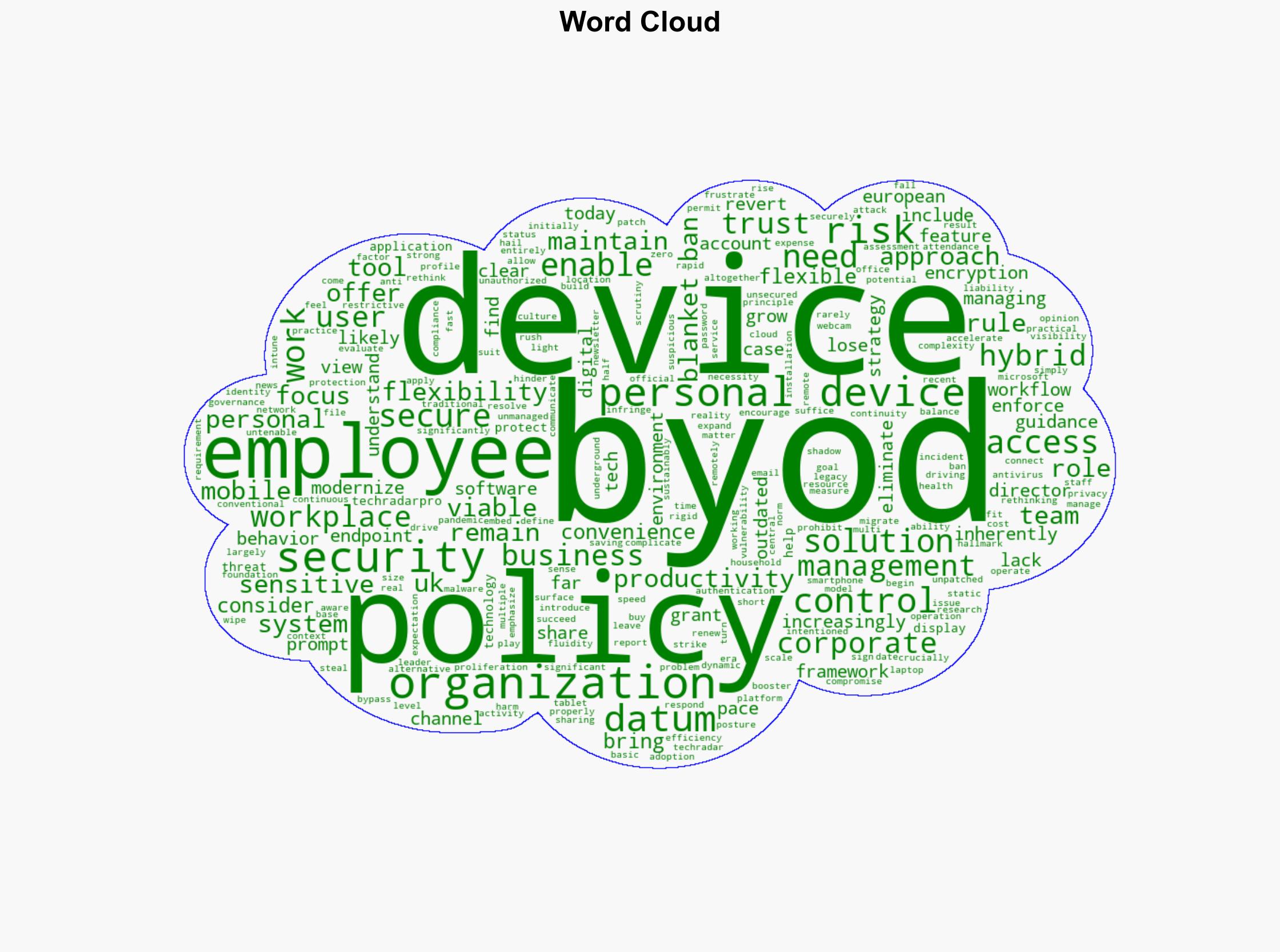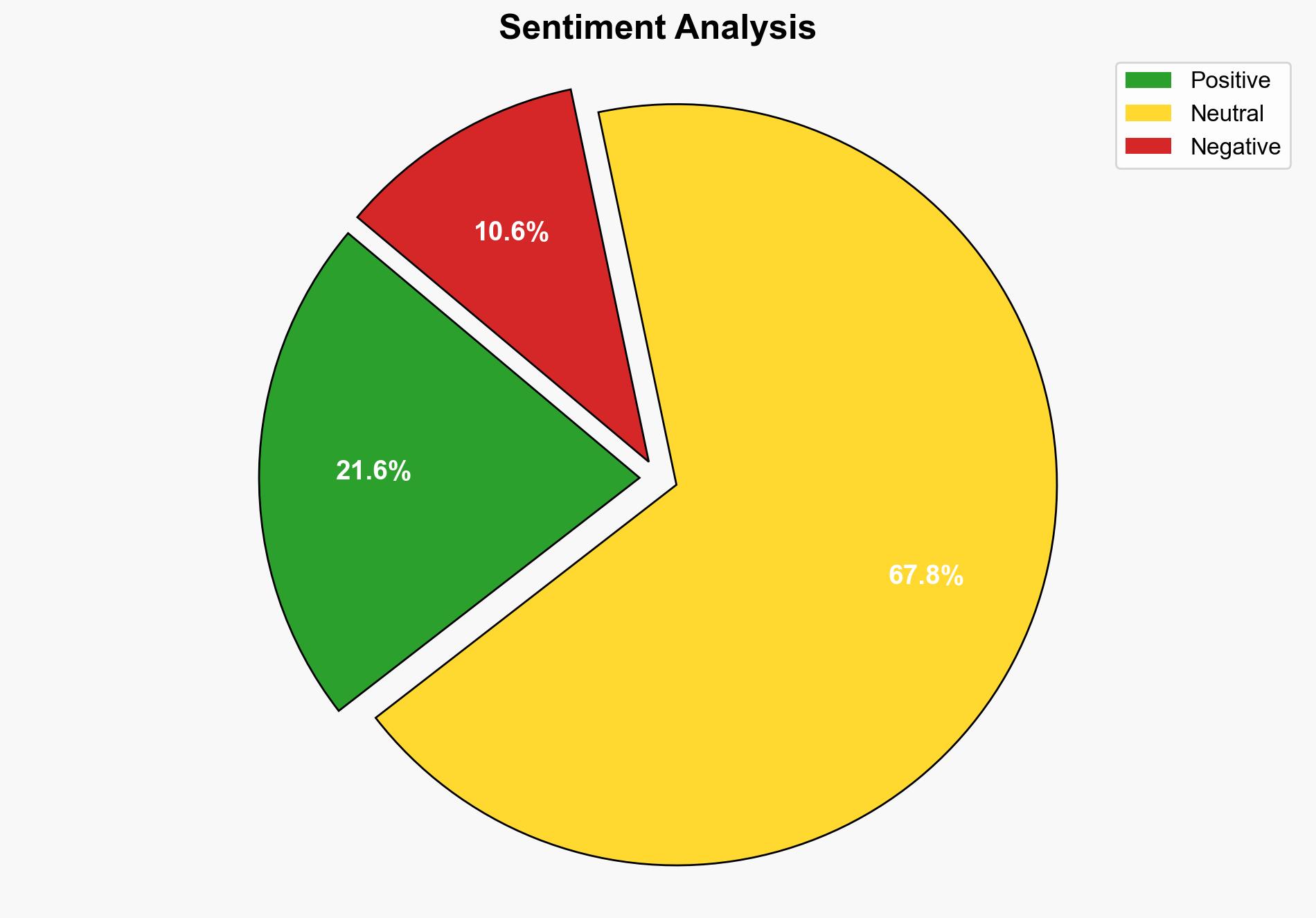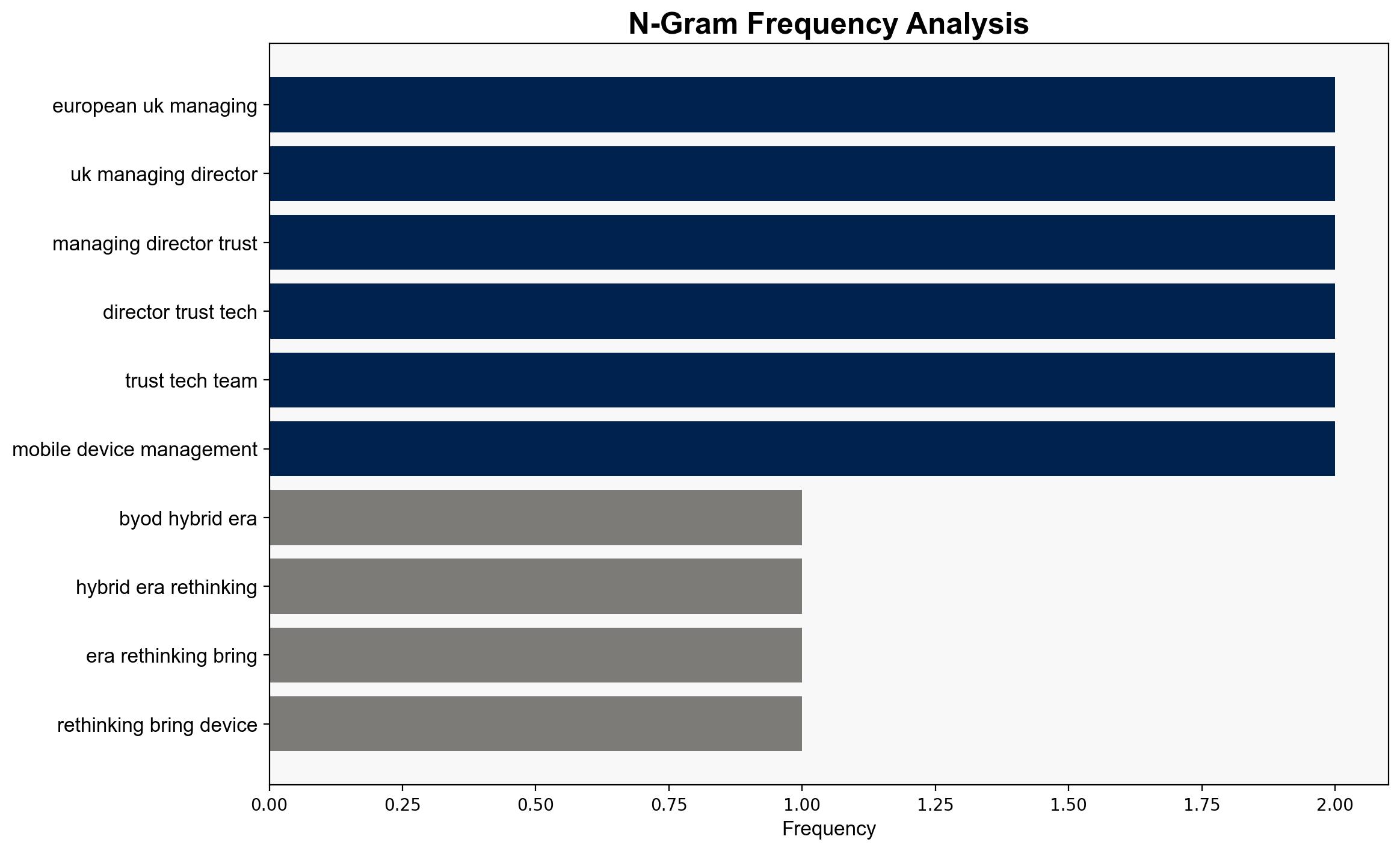BYOD in the hybrid era rethinking bring your own device policies for a secure flexible workplace – TechRadar
Published on: 2025-08-19
Intelligence Report: BYOD in the hybrid era rethinking bring your own device policies for a secure flexible workplace – TechRadar
1. BLUF (Bottom Line Up Front)
The most supported hypothesis is that organizations should modernize BYOD policies to balance security and flexibility, leveraging zero-trust frameworks. Confidence level: Moderate. Recommended action: Implement a phased approach to update security protocols, focusing on identity-based access and continuous monitoring.
2. Competing Hypotheses
Hypothesis 1: Organizations should eliminate BYOD policies entirely to mitigate security risks. This approach prioritizes security over flexibility, assuming that personal devices inherently increase vulnerability.
Hypothesis 2: Organizations should modernize BYOD policies by adopting a zero-trust framework, which allows for secure and flexible work environments. This assumes that with the right security measures, BYOD can be managed effectively without compromising security.
3. Key Assumptions and Red Flags
Hypothesis 1 Assumptions: Personal devices are inherently insecure, and eliminating BYOD will significantly reduce security risks. Assumes that employees will comply with stricter device policies without resistance.
Hypothesis 2 Assumptions: A zero-trust framework can effectively mitigate security risks associated with BYOD. Assumes that organizations have the resources and expertise to implement and maintain such systems.
Red Flags: Lack of data on the effectiveness of zero-trust frameworks in diverse organizational contexts. Potential bias towards technological solutions without considering human factors.
4. Implications and Strategic Risks
Economic Implications: Eliminating BYOD could increase costs due to the need for company-provided devices. Modernizing policies may require significant investment in new technologies and training.
Cyber Risks: A blanket ban on BYOD might push employees to find workarounds, increasing shadow IT risks. A poorly implemented zero-trust framework could lead to security gaps.
Geopolitical Risks: Variations in data protection laws across regions could complicate policy implementation for multinational organizations.
Psychological Risks: Employee dissatisfaction due to restrictive policies could impact productivity and morale.
5. Recommendations and Outlook
- Conduct a thorough risk assessment to understand specific vulnerabilities associated with current BYOD practices.
- Implement a zero-trust framework in phases, starting with high-risk areas, to manage costs and complexity.
- Engage employees in the policy development process to ensure buy-in and compliance.
- Scenario Projections:
- Best Case: Successful implementation of a zero-trust framework leads to enhanced security and employee satisfaction.
- Worst Case: Failure to modernize policies results in increased security breaches and employee dissatisfaction.
- Most Likely: Gradual improvement in security posture with some initial resistance from employees.
6. Key Individuals and Entities
No specific individuals are mentioned in the source text. Entities include UK businesses, European organizations, and technology providers like Microsoft.
7. Thematic Tags
cybersecurity, organizational strategy, technology policy, employee engagement





